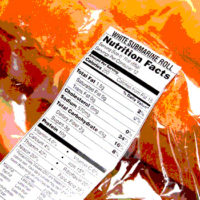Food Safety First: The Importance of Proactive Hazard Control Plans

Credit: Papatsorn Khunsaard/E+ via Getty Images
Anyone who is responsible for the safe production of food is certainly aware of the Hazards Analysis and Critical Control Points (HACCP) framework, as well as the related Preventive Controls for Human Foods rule under the U.S. Food and Drug Administration’s (FDA’s) Food Safety Modernization Act, and how they are both cornerstones of food safety management systems. Although designing and implementing effective, compliant hazards control systems can be a daunting task, the keen use of modern technology can take these systems beyond compliance—making the most of their data and information requirements to drive business value.
Global Importance and Business Impact of HACCP-Based Food Safety Systems
Not only is hazard control in food production crucial to protecting public health—for instance, the U.S. Centers for Disease Control and Prevention (CDC) estimate that, in the U.S. alone, 48 million people contract foodborne illness annually, resulting in 128,000 hospitalizations and 3,000 deaths1—but evaluating and mitigating food safety hazards is also important to protecting brand reputation and profits. For example, an industry survey conducted in 2012 estimated that companies undergoing a food recall will end up paying an average of $10 million in direct costs; additionally, 5 percent of surveyed companies even reported being involved in recalls that cost their business more than $100 million.2 Based on these figures—which have only inflated in the twelve years since they were estimated—a 25 percent decrease in foodborne illness would save the U.S. $4–14 billion, and reducing recalls by half would save industry $5 billion, annually.2
HACCP-based food safety systems are internationally accepted and required by most major food regulatory bodies, and play a critical part in preventing the contamination of food by foodborne pathogens, and therefore, preventing foodborne illness. HACCP is also mandatory under Global Food Safety Initiative (GFSI)-recognized food safety standard certification programs, endorsement by which indicates that a business is upholding the most rigorous food safety standards. Because of this, the development of comprehensive food safety plans grounded in HACCP principles is not only critical to protecting public health, brand reputation, and profits, but it is also necessary in order to remain compliant with regulatory standards and compete in major global markets.
Regulatory Requirements for HACCP-Based Systems, Preventive Control Measures
More specifically, HACCP is a preventive, systematic approach to identifying and developing control measures for food safety hazards at each stage of the food manufacturing process. At present, HACCP is the global industry standard for food safety assurance; HACCP guidelines for international trade were annexed into Codex Alimentarius General Principles of Food Hygiene (CXC 1-1969) in 2003.3 Since then, regulatory bodies in nations like the U.S., Canada, Australia, Japan, and the EU have implemented requirements for food businesses about the development of HACCP-based food safety plans.
Specifically, in the U.S., HACCP principles have been integrated into and expanded upon in federal food safety regulation through FSMA. Passed in 2011, FSMA is a landmark piece of U.S. legislation—considered the country’s most significant piece of food safety legislation since the 1938 Federal Food, Drug, and Cosmetics Act—which greatly expanded FDA’s authority to regulate the way foods are grown, harvested, and processed. FSMA further cemented HACCP’s adoption by businesses selling food on the U.S. market by giving FDA the authority to issue requirements for HACCP-based food safety control plans for all players along the food safety supply chain; previously, only seafood, meat and poultry, and juice and cider businesses were mandated by FDA or the U.S. Department of Agriculture (USDA) to implement HACCP plans. Under FSMA, the “Current Good Manufacturing Practice, Hazard Analysis, and Risk-Based Preventive Controls for Human Food” Rule (the Preventive Controls Rule) establishes that food facilities must have a food safety plan in place that considers hazards and risk-based preventive controls.4 Unless covered by other, commodity-specific regulations like the Pasteurized Milk Ordinance (PMO), juice HACCP, seafood HACCP, or meat HACCP, producers of virtually any FDA-regulated food are now required to implement HACCP- or preventive controls-based food safety plans.5
Optimizing Business Value of HACCP-Based Food Safety Systems by Using Modern Technology
Through a risk-based, science-driven approach, HACCP helps food businesses make better use of resources by focusing on the most relevant critical control points (CCPs) in a process, rather than reactively basing controls on inspection and testing. Additionally, because it standardizes hazards management, HACCP facilitates easier food safety inspections and audits. Without careful design that prioritizes quality data collection and flexible recordkeeping, the benefits of a HACCP-based food safety system cannot be realized.
Thanks to modern technology and food safety management software, a food safety plan can be optimized and adapted to drive value to a business. When it is designed as a “living document” that leverages data and exists within the greater context of a company’s processes, control plans can be continually improved to assure total regulatory compliance, increase efficiencies, and better protect food safety. A HACCP-based food safety system comprises seven principles, all of which are more easily managed when a system is modernized:
- Conduct Hazards Analysis: Identify potential hazards—which can be biological, chemical, physical, or radiological6—at all stages of production, assess their likelihood of occurrence, and determine control measures
- Determine CCPs: Determine the “points” in a process that can be controlled to eliminate or minimize hazards
- Establish Critical Limits: Define criteria that must be met to consider a CCP “controlled”
- Establish Monitoring System: Continuously assure a CCP is controlled through routine testing or inspections
- Establish Corrective Procedures: Establish actions to be taken when a CCP is not under control
- Establish Verification Procedures: Carry out verification activities to assure that the HACCP system is effective
- Document and Keep Records: Maintain records for all activities carried out under the HACCP plan
Although there is a sizable amount of information and data management inherent to owning a HACCP-based food safety system—enough that it could become unwieldy—with smart, modern management, food safety systems have the potential to drive business value. Companies can save time and resources, keep their products in compliance with regulatory standards, and confidently assure food safety by making use of available tools and technologies that can glean insights from and organize food safety systems and related data. For example, software solutions like FOSS IQX can turn food safety management systems into business assets by automating and integrating manual information processes, digitalizing task management, centralizing documentation, enabling real-time protocol updates, and reacting to regulatory and compliance changes.
When it comes to designing and implementing HACCP-based food safety management systems, it is in a company’s best interest to invest in the best available technologies and services to streamline processes, reduce costs and risks, and enhance efficiencies. With proper food safety systems management, food safety standards and regulatory compliance can be confidently upheld, thereby protecting brand reputation and market competitiveness, preventing costly recalls, and safeguarding public health.
References
- CDC. “Estimates of Foodborne Illness in the United States.” November 5, 2018. https://www.cdc.gov/foodborneburden/index.html
- Stephen Ostroff, M.D. “The Costs of Foodborne Illness, Product Recalls Make the Case for Food Safety Investments.” Food Safety Magazine. June 20, 2018. https://www.food-safety.com/articles/5847-the-costs-of-foodborne-illness-product-recalls-make-the-case-for-food-safety-investments
- FAO/WHO Codex Alimentarius Commission. Annex IV to “General Principles of Food Hygiene” (CXC 1-1969). April 2003. https://www.fao.org/fao-who-codexalimentarius/sh-proxy/en/?lnk=1&url=https%253A%252F%252Fworkspace.fao.org%252Fsites%252Fcodex%252FStandards%252FCXC%2B1-1969%252FCXC_001e.pdf
- FDA. “Current Good Manufacturing Practice, Hazard Analysis, and Risk-Based Preventive Controls for Human Food” (21 CFR 117). Federal Register. September 17, 2015. https://www.govinfo.gov/content/pkg/FR-2015-09-17/pdf/2015-21920.pdf
- UT Institute of Agriculture. “What is the difference between a HACCP Plan and a FSMA Food Safety Plan?” February 16, 2022. https://sdbii.tennessee.edu/what-is-the-difference-between-a-haccp-plan-and-a-fsma-food-safety-plan/
- Cornell CALS Dairy Foods Extension. “Food Safety Plans.” Accessed May 1, 2024. https://cals.cornell.edu/dairy-extension/what-we-do/food-safety-resources/food-safety-plans.
Looking for a reprint of this article?
From high-res PDFs to custom plaques, order your copy today!





